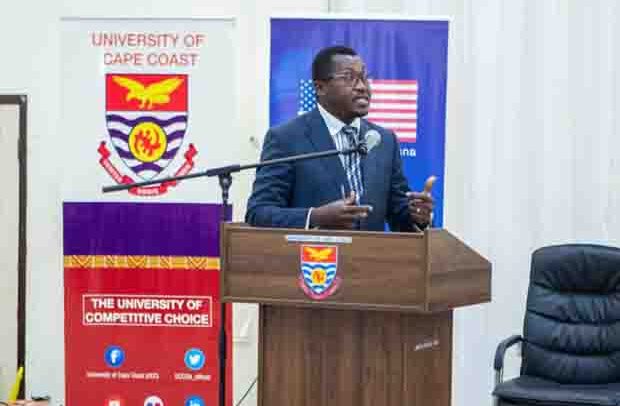Mr. Kwadwo Addo Tuffour
Ghanaians have been charged to hold public officers accountable for the wealth they create while in office.
Lecturer at the Faculty of Law, University of Cape Coast, Kwadwo Addo Tuffour, who gave the charge said citizens need to question unexplained wealth of public officials.
He said although public office holders have the legal right to create wealth, citizens must hold them accountable by questioning the unexplained source of their wealth.
Mr. Tuffour, speaking at a Zoom forum organised by the Commission on Human Rights and Administrative Justice (CHRAJ) said the 1992 Constitution mandates public institutions to render accountability to the citizens but lamented that, most of them have refused to do so.
Mr. Tuffour said in such situations, it behooved on the public to demand for it if the institutions were not forthcoming with the information.
The forum to commemorate the 30th anniversary celebration of CHRAJ sought to explore how anti-graft institutions, Civil Society Organizations (CSOs) and the public can make public servants and institutions more.
Theme, “CHRAJ at 30: Promoting and Protecting Human Rights and Ensuring Transparency and Accountable public service delivery”, it also seeks to strengthen stakeholder partnership at various levels and boost local participation in the operations of the Commission.
Principal of the Enchi College of Education, Philip Ntaah, said all activities of public institutions must be monitored and compared to set standards.
He also suggested that CSOs should report on findings made on the institutions to a wider audience.
“When they get to know that the public is going to scrutise their work, they will sit up,” he said.
He, however, noted that the above measures would not materialise if the barriers to demanding accountability were not removed.
He stated that one of the factors that prevented CSOs and the public from demanding accountability was changes in the law.
He called for the involvement of CSOs in the making of regulatory laws of public institutions to enable them to monitor the compliance level of those institutions.


